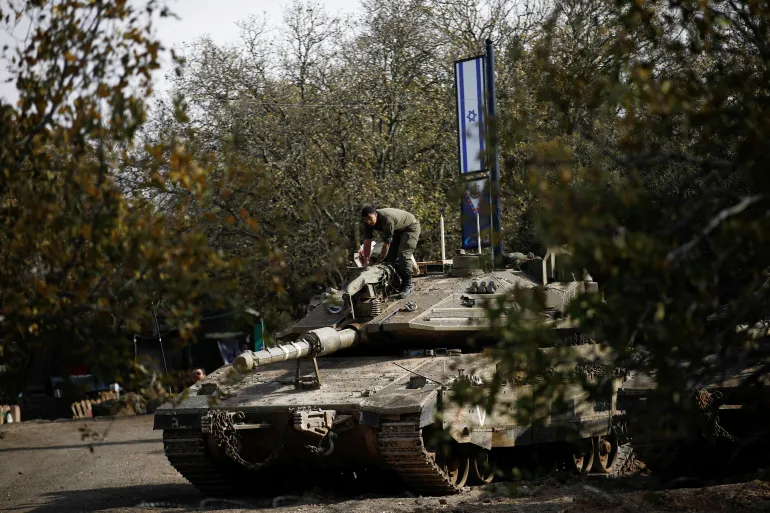Israeli forces have carried out large-scale attacks across Syria, targeting air bases and other strategic military infrastructure, including in the capital, Damascus.
According to sources, the Qamishli air base in northeast Syria, Shinshar base in the countryside of Homs and Aqaba airport southwest of the capital Damascus were all hit.
Israel also launched several strikes on a research centre on the outskirts of Damascus and a centre for electronic warfare near the Sayeda Zainab area of the capital.
Israel told the United Nations that it is involved in “limited” actions in Syria after the fall of President Bashar al-Assad.

The Israelis claim the reason for the attacks is that they are concerned that these strategic facilities, ammunition and military equipment could fall into the hands of the opposition.
However, Israel’s move is actually further challenging the transition period in Syria.
For more than five decades, the Assad regime has ruled over Syria.
Following his overthrow, steps are being taken for transition of power.
The opposition is not experienced when it comes to state affairs, they are already facing numerous challenges, security challenges, and on top of that now, the Israeli attacks are coming again and again, destroying almost all facilities and constantly hitting the capital.
Israel has also taken over a buffer zone in the Syrian-controlled areas of the Golan Heights.
In its first comment since rebels overthrew the group’s ally, President Bashar al-Assad, Lebanon’s Hezbollah group condemned increased Israeli strikes on Syria and said that it stood by the country’s people.
Hezbollah lambasted Israel for “occupying more land in the Golan Heights” where it moved troops into a buffer zone after Assad fell, and for “striking and destroying the defensive capabilities of the Syrian state.”
The group added that while we affirm our support for Syria and its people, we stress the necessity to preserve Syria’s unity.
Iran also condemned Israel’s “repeated violations of Syrian infrastructure” and seizure of Syrian land.
The Iranian Foreign Ministry’s Spokesperson, Ismail Baghaei said that he considered Israel’s actions a violation of international law and called for an “immediate response” by the UN Security Council to “stop the aggression.”
Additionally, Saudi Arabia’s Ministry of Foreign Affairs condemned Israel’s land grab in the Syrian-controlled areas of the Golan Heights.
In a statement posted on X, Saudi officials wrote that the attacks carried out by the “Israeli occupation government” through seizing the buffer zone in the Golan Heights, and the targeting of Syrian territories by the Israeli occupation forces, “confirm Israel’s continued violation of the rules of international law, and its determination to sabotage Syria’s chances of restoring its security, stability, and territorial integrity.”
A Violation Of 1974 Agreement
Moreover, UN peacekeepers in Syria told Israeli forces that their seizure of land in Syria constitutes a violation of an agreement established in 1974.
Back then, Syria and Israel signed the Agreement on Disengagement, which ended the Yom Kippur War.
A UN peacekeeping force was also established, UNDOF, tasked with maintaining the ceasefire between the two countries.
After the ouster of Bashar al-Assad, Israel considered the deal null and therefore occupied Syrian land near the already-occupied Golan Heights.
UN Secretary-General’s Spokesperson, Stephane Dujarric said that the peacekeepers at UNDOF informed the Israeli counterparts that these actions “do constitute a violation of the 1974 disengagement agreement that there should be no military forces or activities in the area of separation, and Israel and Syria must continue to uphold the terms of that 1974 agreement and preserve stability in the Golan.”
READ ALSO: Bawumia Urges Mahama to Rein in Supporters to Protect Peace and Unity




















